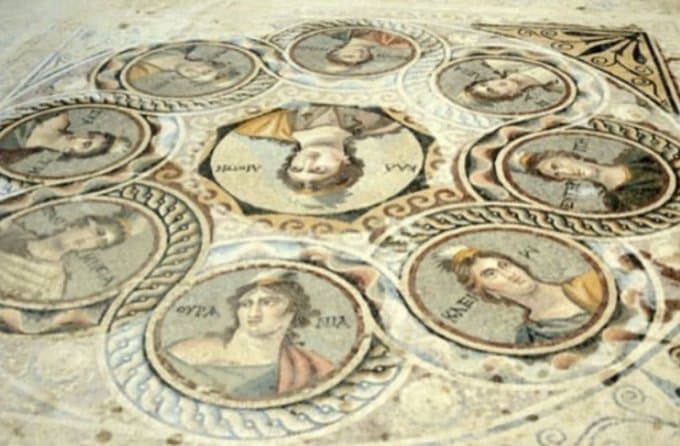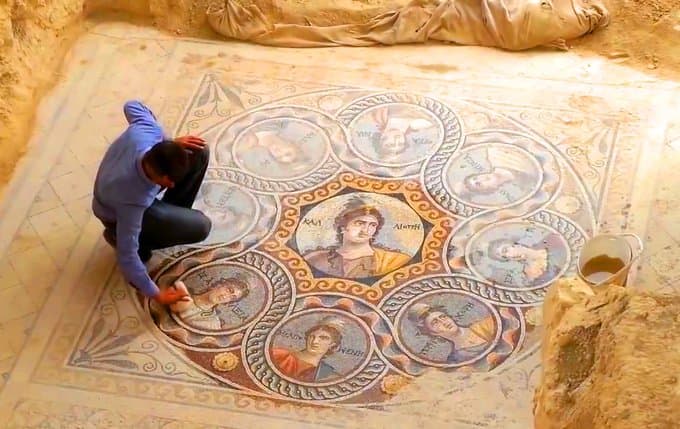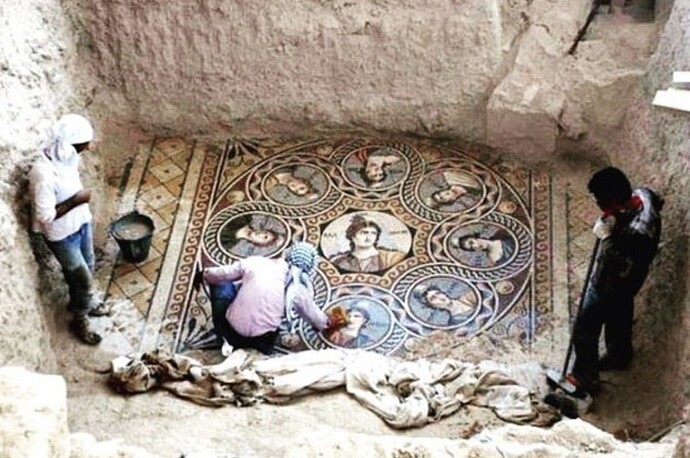2200-year-old glass mosaics dug up from the ancient city of Zeugma, in modern-day Turkey. The glass mosaics were found in the city currently located on the Euphrates river in modern-day Turkey.
Zeugma was founded in 300 BC by Seleucus I Nicator, one of the generals of Alexander the Great, who named the city after himself. The city was sacked by the Romans in 64 BC, who changed the name to Zeugma.
The population of the city at its peak was about 80,000. Because of the location of the city, it was constantly between controlling nations, and thus the architecture is influenced by many cultures. Zeugma was known for its art and architecture.
A team found these glass mosaics in 2014. The findings are estimated to be 2,200 years old. The mosaics depict the nine Muses, the gods and goddesses of the inspiration of literature, science, and the arts.
All the mosaics are constructed of colored glass and served as floors of a building that the team of archaeologists dubbed the ‘House of Muses’.




